|
After a busy day training and working, the last thing you want to think about is what to cook for dinner. Therefore, I always try to go into each week with a rough idea of what meals I want to cook each night. This way, there is no stress throughout the day of getting to a supermarket, or having to think what you fancy/have time to prepare. For this reason, I tend to give my meals a little bit of structure. There is nothing I won’t allow myself to eat, but to make it easier to think of recipes, I set myself a few things I want to tick off each week. I try to make sure I have: 2x Vegetarian dish (E.g. Halloumi burgers, mushroom risotto, vegetable pasta, flatbread pizzas) 1x Oily fish dish (Salmon traybake, Salmon & Dill Tortilla) 1 Red meat dish (Steak and Mushroom Orzo, spaghetti bolognese, chilli con carne) 1x Chicken dish (Fajitas, Parmesan Chicken Pasta, Piri Piri Chicken and chips) Then the other 2 dinners allow for a little more flexibility. Maybe I’ll be at a friends for dinner, my parents, or out at a restaurant. This means I can be reassured that each week I am eating a balanced and nutritious diet. Planning dinner can for some avoid the possibility of that last minute decision to have a ‘snack’ for dinner. So, outside from the obvious, why is dinner so important when it comes to training? Why is dinner so important? Refuel after a big training/working day.
When you’ve had a long training/working day, it can be hard to fuel sufficiently throughout the day. This is especially the case if you have training in the morning and the afternoon, or work has been so busy and you haven’t had time to stop. It can be hard to find the time to cook yourself a decent and substantial meal in the day, and frequently we rely on snacks either side of lunch to get us through. However, dinner is the perfect opportunity to cook a decent meal in order to refuel your body after a big day of training/working. Give your body energy to repair over night. The majority of our body’s repairing happens overnight when we are asleep, and this requires quite a lot of energy from our body. Therefore, in order to allow the repairing process to take place properly, we need to fuel the process. A lack of food can hinder this process and therefore inhibit our body’s ability to repair itself, and thus increase the possibility of injury. Set you up for the following day. Not only does a decent meal give allow you refuel after a big day, it also sets you up for the following day. Many of us do not have the time to have a big breakfast ahead of training, therefore a decent meal at dinner can mean that a standard size breakfast is all you need ahead of training/working the next day. If you do not have enough for dinner you can wake up very hungry, then only have time for a small breakfast, and thus go into your training under fuelled. If you have a busy workday, sometimes only a cereal bar is all you have time for. A good dinner helps avoid this and ensure you are still getting a decent meal in your day. Enjoyable and sociable. This is one of the best parts of dinner. It is a chance to catch up on what those around you have been up to throughout the day, or what they have planned for tomorrow. It is an opportunity to chat over food. Food is a great way to bring people together. It is very rare that we have time at breakfast and lunch to sit down with others and enjoy eating a meal, however dinner is usually the opposite. It is a time to slow down and enjoy the food in front of you. If you ever find yourself getting to dinner and considering knocking it on the head, read the above points and think again. Dinner is a very important meal, and whilst I’m not a nutritionist, I have experienced the consequence of frequently knocking dinner on the head.
0 Comments
It’s nearly the end of my 2 week holding camp at the X-Bionic Sphere in Slovakia, and honestly I couldn’t have asked for a better camp to prepare for the Commonwealth Games. Spending time with the Northern Irish team has allowed me to become completely consumed by training and bond with those on the team. Being with others who are all working towards the same goal has allowed me to dream big and feel more confident building into the games. I am therefore very grateful to Athletics NI for the opportunity and can’t wait for the next few weeks ahead. How am I feeling? I am feeling a mixture of many emotions. Currently I am feeling pretty similar to how I feel ahead of any race. I am focused on training and preparing as well as I can, whilst keeping as relaxed as possible. I am just taking each day as it comes and focusing on the training I have at that specific time. I am not thinking too much about it, but also allowing myself to visualise what the race could be like so I can feel slightly prepared. I am super excited to have the opportunity to compete at such a level, and I know that whatever happens, I will come away from the Games having learned so much. What am I doing?
Currently I am away in Slovakia on a 2 week holding camp with Team NI. This has been great as it has allowed me to get to know the team whilst having all sights focused on the Games in 2 weeks. Whilst out here I have been training as normal, doing no more than my usual plan involves, but also listening to my body closely. These next few weeks are crucial, as it’s important to work hard, but I also don’t want to overdo it. It is better to allow extra recovery rather than push the body too hard. Therefore, the plan is not set in stone, and if I feel the need, which I have, to have extra rest day, then adjustments can been made last minute. This ensures I stay as fit as possible, but don’t risk burning out. For example, this week I was beginning to feel quite tired and run down, so we opted to add in an unplanned rest day and I felt much better for it. Looking ahead. With just over a week until I enter the village, there are only a few days of training camp left. Then I’ll be home for a few days before the real countdown begins. It is just 12 days until race day. Exciting times!!!! This week marked the start of my first ever training camp. For 2 weeks I have headed away with the Northern Irish team to prepare for the Commonwealth Games. I wasn’t sure what to expect as I don’t go away from home often, but when the training set up is perfect where I’m going, I know I will be happy. Eat sleep train repeat. Don’t get me wrong, my life on a daily basis at home is training orientated. My whole day is structured around training. However, it also comes with having to fit in daily life jobs, which can be more stressful than you realise and also take up quite a lot of time. I also spend a lot of time in the car driving from home to training locations. Going away for a training camp has erased all of that. I have continued to work remotely, but all the life jobs and travel time has been erased. The track, gym, run routes, physio and everything else you can image is on the doorstep. This means I can also focus on recovery. As soon as a session is done I can hop in an ice bath and start recovering without the delay of travelling. If I need a nap, I have time to nap. Not having to travel also allows me to maximise the amount of sleep I’m getting as I don’t need to wake up super early. Super-friendly people with the same goals.
Living in the middle of nowhere, I am used to training solo, which I love, but the lack of other athletes also means there is a lack of people trying to achieve the same thing. For this reason, the training we have to put in to get to where we want can seem a bit crazy to some. Being surrounded by athletes all working towards the Commonwealth Games, all with the desire to give their best ever performance, and all guided by training, makes training that bit easier. It is lovely to be able to share the journey with others in a similar boat. Amazing facilities. At home we are very lucky to have access to some great facilities. The gyms and the track are all of a decent standard. However, being at a location where the facilities are the driving force means they are going to be impeccable. There is everything you need and more. This takes all the usual stress associated with going abroad. Most of the time you are unsure whether the place you are heading has all you need, and it can mean hitting a few of your usual things on the head. However, there is zero stress of that here because EVERY piece of equipment I could need is here. Ultimately, training camps are not the be all and end all. They are not going to make you any better just by going away. Hard work is hard work wherever you are. However, the ease of training and focus they provide can be immensely beneficial. If you get the opportunity to head away training, go for it! A training camp is the least stressful trip abroad, because it has everything you could possibly need! For a long time I tried incredibly hard to avoid Covid. I was (and probably still am) a bit of a covid freak. I was determined not to get it, however, catching it at some point was inevitable. Slowly it was getting closer and closer. My dad caught it, then my mum, then my boyfriend, and surprise surprise, I was next. However, I was bizarrely relieved. With the Commonwealth Games looming, I was going to get it at some point, so it was good to have got it with still enough time to go to take my time recovering properly. Fortunately, I was quite lucky and didn’t react too badly. I had one day feeling a bit off, 2 days feeling quite rough, and then I was quickly back to normal. That being said, like any illness, you need to respect it when you return to running. So, how did my return to running after covid look? When did I run? Obviously being a typical runner, the temptation is to keep running through, but when ill your body has to work hard to fight whatever it is fighting, and running can do a lot more damage and no real good. Therefore I stopped running as soon as I felt funny and tested positive. I then didn’t return to running until I’d had a full day symptom free (besides a remaining runny nose). This ensured my body had done the majority of the fighting and I wasn’t going to overload it. How did running feel? Easy running actually felt pretty good and normal. It was great to get outside again and move my body. My legs felt a little heavier than normal, but my body itself felt ok. My heart rate had returned to normal, but my breathing was a little bit faster and more irregular. I just kept my runs really easy and relaxed. I tried not to think too much about how I was feeling as at this point I would just be overthinking. In order to help my breathing, I just focused on being relaxed. When did I session?
I didn’t want to risk doing a hard session until I was sure I was completely better. Therefore after a few days of easy running, I did a half session. I just did some short hill reps followed by a steady effort run. I felt much better than expected, so this was a good indicator that I was ready to get back to it. I personally found it best to do a half session as my first session as it also ensured I didn’t push too hard too soon. I could get more body working again, but not risk ending up absolutely spent. I then followed this again with a few easy days, before I tried a higher effort session. This did feel a little harder than normal, and I didn’t feel great, but it was to be expected after a little while out from the routine of hard training. How did I increase the volume? Due to the fact I hadn’t been out of training for very long, the return to full volume didn’t take long. I had an easier week and then the following week I gradually built it up to normal volume. The important thing is to listen to how you feel and be governed by this. If you have a few days back training and then start to feel worse, take a step back. Rushing it will do a lot more detriment than taking your time. Also, if you have a coach, feed back to them how you feel. They can only know what training to set you if you are honest with how you’re feeling. Communication is vital. Key learning point. I found it important not to stress or put too much pressure on myself. The most important thing was to recover well, no matter how long it would take. Therefore there was no point stressing about what other people were doing or the fact I wasn’t able to do British Champs, but instead focus on what I could do. Taking every day as it came and not forcing the training was the best way forward. If I didn’t feel as strong as I did a few weeks ago, this was ok. I hadn’t lost any fitness, it just takes a few weeks for the sharpness and flow to return. Remember, don’t force it and be truthful about how you feel on a daily basis. I’m sure I speak for a lot of people when I say that I find it hard to settle for average when it comes to sessions. I have that type A personality trait that always feels the need to be doing better than what’s expected. Therefore, when a session day arrives and my body isn’t feeling great, I find it hard to be comfortable with an ‘average’ session, even though its the best I have on the day. However, sometimes average is the best place for you to be, and here is why. Prevents you overreaching. Having average days can be exactly what you need. It can be a sign that you need more recovery and therefore remind you that it is ok to stay within yourself in order to get back feeling fresh. By doing this, it allows you to be more in tune with how you feel and contribute to consistency. Being able to tick off weeks of back to back training without pushing over the red line, not only allows you to train consistently because you’re not too tired, it also helps prevent injury. It can be hitting that red line that just tips you over into injury. Allows you to be more than average. Whilst it may sound contradictory, for the above reason, average allows you to exceed average. If you can get weeks and weeks of training consistently, you open yourself up to progression. Training is what makes you faster and stronger, so if you can do this for a long time without interruption, you will notice the benefits. It also means by just getting the job done on some days, you can smash others, and even better if this is a race day. Race days are when you can step out of average. Fitness has a range.
Frequently when doing a session, there is a range of where you can be to achieve the same benefit. This may be a 5 second range, or even more, and whether you are at the highest or lowest point of this range, you will still be getting the same benefit. If your effort levels are at where you feel they should be, you are in the right place. This shows that every session doesn’t need to be hammered, because you can achieve the same result without flooding your body with so much fatigue. This also adds to my initial point about not overreaching and risking injury. Allows us to appreciate above average. Everybody needs average. If we exceeded average everyday, eventually that would become our average. Therefore, average will always exist. We need to have slightly less amazing sessions in order to recognise when one has truly gone above expectation. The tough days and average sessions keep us grounded and remind us not to take the journey for granted. It is the days where it doesn’t come so easily and we have to really dig deep that make us stronger. They make us appreciate that sport is not easy and no matter where you are in your journey, it will be tough. These days make the good ones seem so much sweeter. For these reasons, average can give us a lot of benefit. |
Hannah IrwinI love to run and I love to write, so I write about running! Archives
March 2023
Categories |

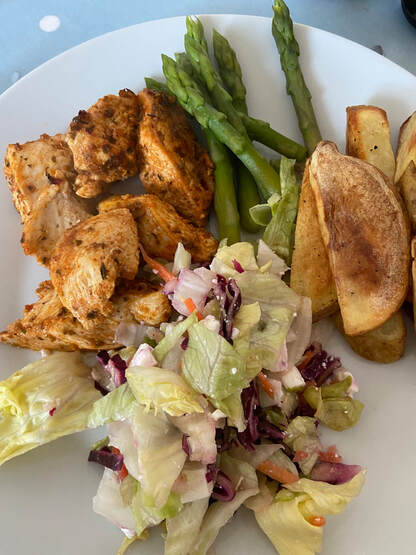
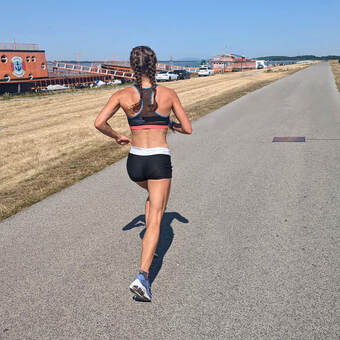
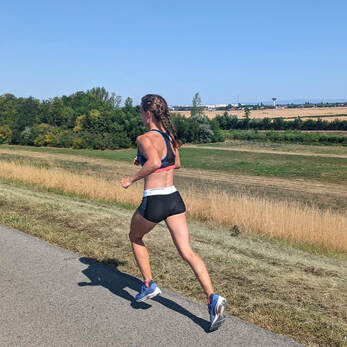
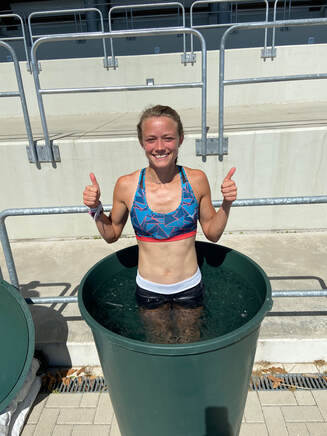
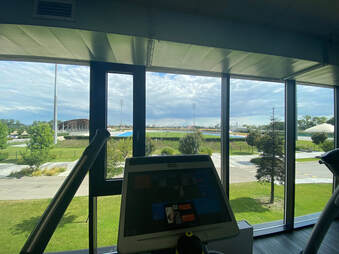
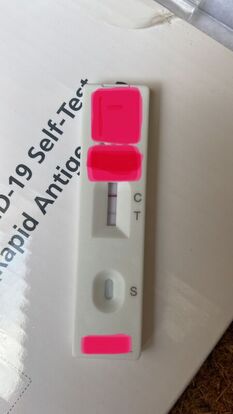
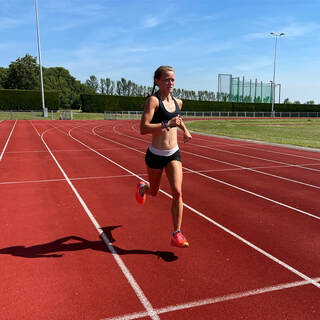
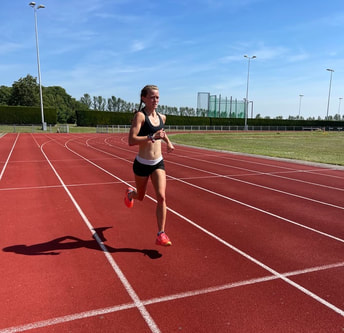
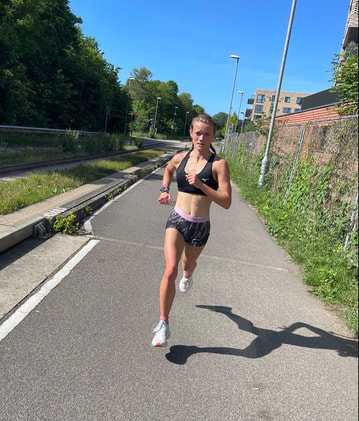
 RSS Feed
RSS Feed
